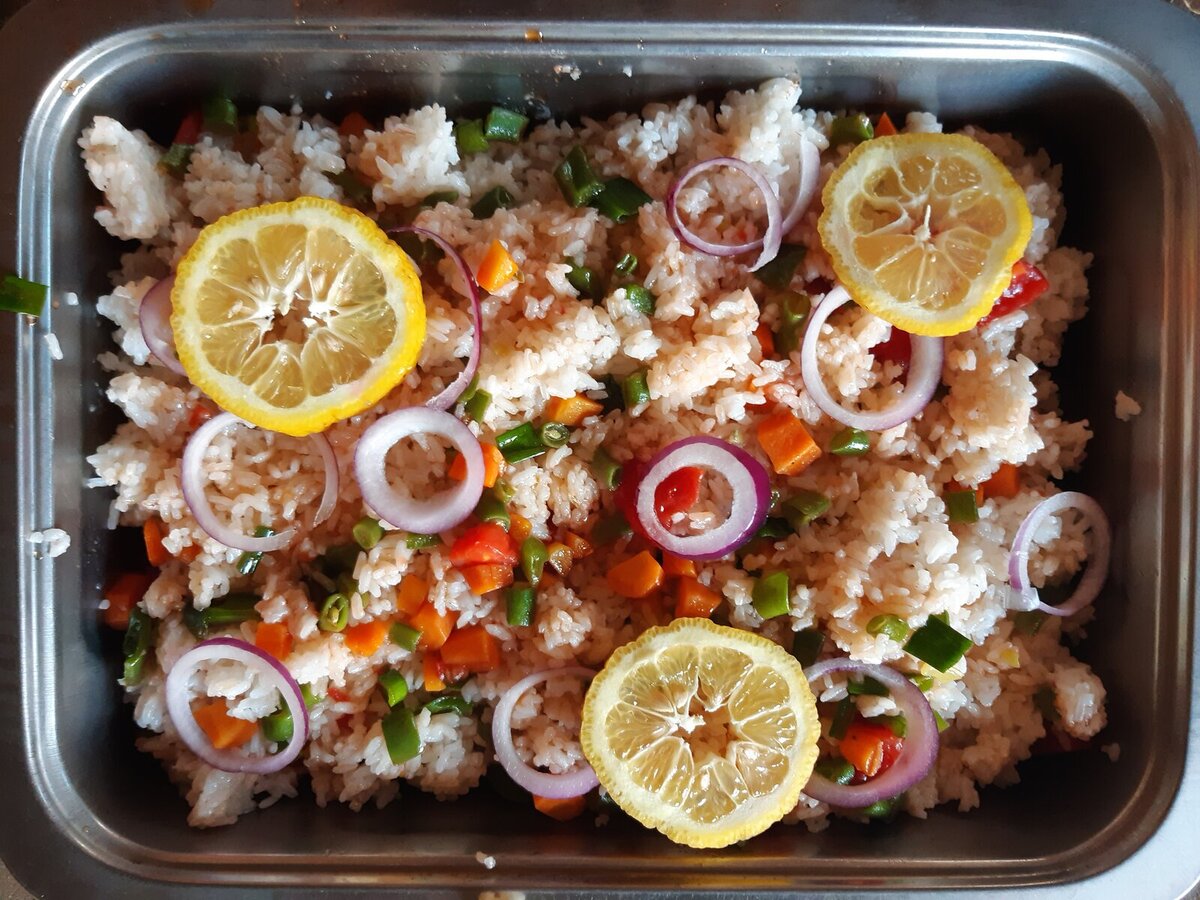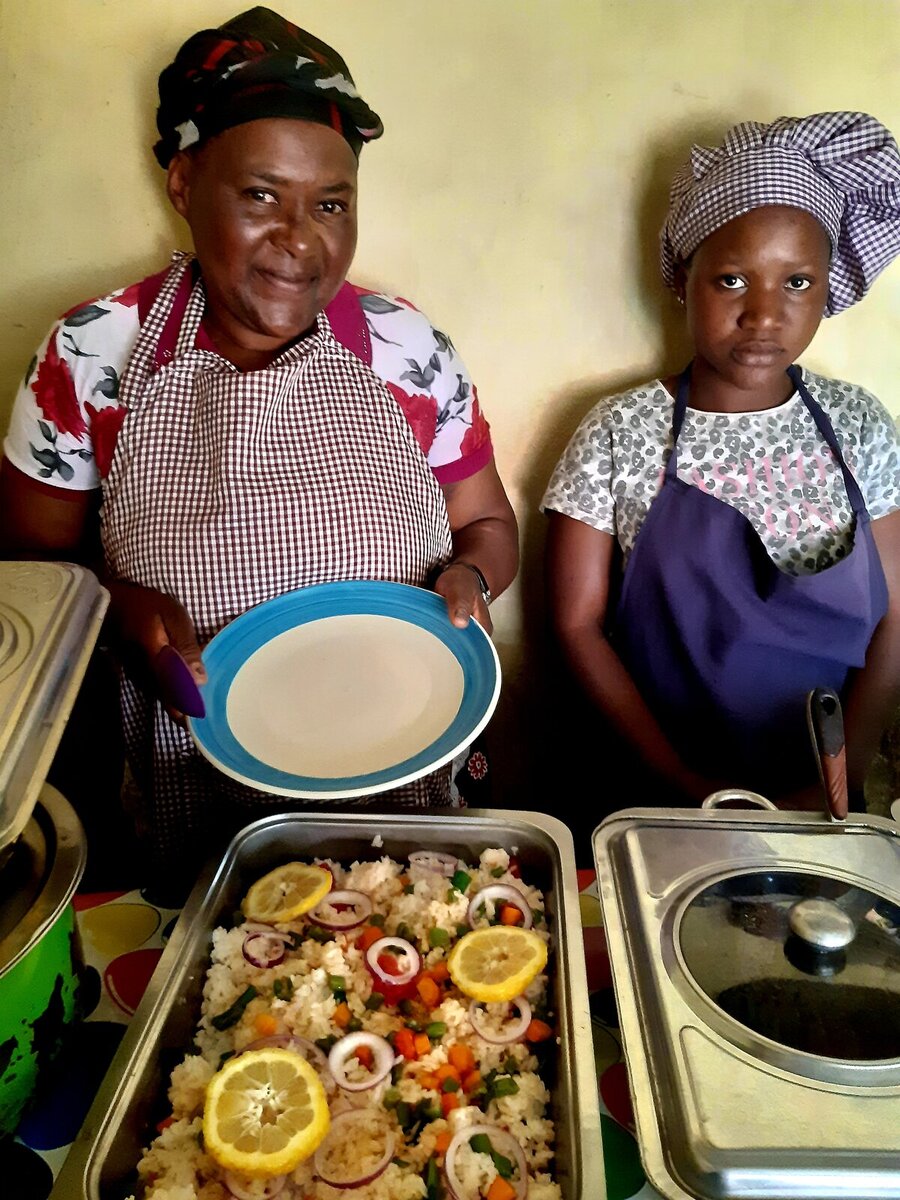Life in a refugee settlement, far from big cities and job opportunities, makes it difficult to earn a living. Thanks to Caritas Czech Republic and UNHCR, refugees and people from host communities can open their own small businesses in the settlement. Like Namenda Simbuwa, who opened her own restaurant where she who cooks delicious meals that people love to eat.
Namenda starts her restaurant journey
The Mayukwayukwa refugee settlement lies in Zambia's Western province and is home to over 14,0000 refugees and people from host communities. Namenda is one of them. She was born in Zambia to a Zambian father and Angolan mother who fled the war in Angola in 1970 for safety in the neighbouring Zambia. Namenda lives in Mayukwayukwa together with her husband and their 5 children.
Finding a job in a refugee settlement is almost impossible. The only option for the locals is to start their own small business. As a passionate cook, Namenda decided to open a restaurant in the settlement. Caritas Czech Republic helped her turn her dream into a reality. “In 2018 Caritas Czech Republic was carrying out workshops on entrepreneurship and I was lucky enough to be one of the participants. We learnt how to start and manage a business. And when they asked me what kind of business I wanted to do, I said I would open a restaurant because I love to cook. Then I got a loan from Caritas Czech Republic and I added our own savings and so I started my business,” says Namenda happily.
Namenda studied Home Management, Food and Nutrition and she also took a catering course, so she already had good qualities to run her own restaurant. “But I didn't know how to manage a business,” Namenda explains and adds that the beginning was not easy.“It was a bit difficult when I started, there were a lot of challenges and I was still new in the industry.”
Although Namenda is happy to run her own business, she mentions there are still issues she has to deal with.Mainly regarding the problem with power and also the fact that many commodities, for examples spices, cannot be found in the Mayukwayukwa refugee settlement. To arrange for missing items, she needs to hire someone to buy them in the capital Lusaka, eight hours away from the settlement.
Namenda's restaurant offers a selection of dishes, ranging from traditional nshima, to various meats such as goat meat, beef, fish, chicken, to vegetables such as rape, pumpkin and cassava leaves, as well as rice and beans. Usually about 20 to 50 customers come to the restaurant daily, but if there is a significant event in the settlement, the number can reach up to 70 or 80.
Namenda becomes an employer
In a country with high unemployment rate among young people, which stood at 12.36 per cent in 2021, it is quite important that people try to offer employment through their entrepreneurial skills. Thanks to her restaurant, Namenda is now among the people who are offering employment to others. She has three employees in the restaurant for whom she is very happy.
“I know they can handle customers, they learnt how to cook, so these are my helpers, my girls and I trust them.”
I love my job, says Namenda
“I love my job because I like feeding people. I make sure that I cook quality food that people love to eat. Then I see that people appreciate it when they say they enjoyed it,” Namenda says about her job.
Namenda appreciates the opportunity she has been given to fulfill her dream of becoming a restaurant owner. “The support I received from Caritas Czech Republic means a lot to me and has helped me a lot. It’s not only the financial support, but also the knowledge which I have gained. I know how to advertise my business, how to price my commodities and generally manage my restaurant,” Namenda says gratefully.
Caritas Czech Republic in Zambia
In 2023, Caritas Czech Republic celebrates ten years of humanitarian aid and development cooperation in Zambia. We are active in the country in a number of areas. Zambia is home to over 105,000 refugees, mostly from countries such as the Democratic Republic of Congo, Angola, Burundi and Rwanda. Due to government restrictions, it is difficult for them to find work, especially in the refugee settlements where there are fewer opportunities than in the big cities.
Together with the UNHCR, we support refugees to learn a skill and set up their own business, like Namenda did. We also support refugees in Zambia to study at university and become self-sufficient.










